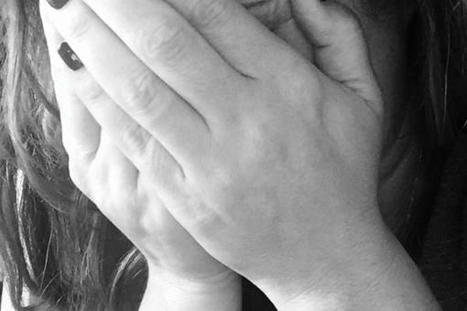 Your new post is loading...
 Your new post is loading...
CBT has long been considered a gold-standard treatment for depression—but does it still hold up? A new review of over 60 recent trials suggests its effects remain strong.
How to cope with losing a sense of normalcy in your life. Read more at straitstimes.com. Read more at straitstimes.com.
End-of-life care includes plenty of laughter, says hospice nurse Kath Murray.
Treating grief as a sacred act can change your life. Well-being educator Devi Brown explains why building a self-care routine around sadness can open you up for more joy.
The RSPCA is calling on animal lovers to honour beloved pets who have passed, by planning their own ‘Walk to Remember’ on National Pet Memorial Day (14 Sep) – as more than one quarter of owners admit struggling to memorialise a lost companion. The special virtual event this Sunday (14 Sep) offers a meaningful way […]
Depression among the elderly is a mood disorder marked by prolonged sadness, loss of interest and energy, as well as changes in
Throughout the years, clients have asked me to work with employees whose performance had dropped. Almost every one of those employees had suffered a loss.
Most American adults say they are concerned that their brain health will decline as they get older. Research shows lifestyle interventions — like exercise and diet — can reduce the risk and help mitigate effects of cognitive decline.
Psychiatrist.com, a medical publisher, offers peer-reviewed research, clinical guidelines, and CME from the Journal of Clinical Psychiatry and Primary Care Companion
From pursuing joy without guilt to creating rituals to remember, there are ways to navigate the life after loss.
There's Big-D Depression, the clinical kind, and little-d depression, the passing mood kind. All of us experience little-d depression sometimes, but not necessarily Big-D.
(The Conversation is an independent and nonprofit source of news, analysis and commentary from academic experts.)
In today’s column, you will meet three women who are struggling with clinical depression. By looking at their lives, you will gain knowledge about depression: What it looks like, the three …
|
Depression can be considered a form of unasked-for wisdom.
More than a decade after losing her mom to cancer, Katie Buck reflects on how the experience has helped her find her professional identity and connect with patients.
Stress is a major public health problem calling for scalable interventions. Physical activity (PA) and slow-paced breathing (SPB) can reduce stress, b…
Not all grief is related to death.
A Gallup report published Sept. 9 found that nearly 48 million Americans currently have or are being treated for depression.
More than 18% of U.S. adults report depression, with rates doubling among young adults since 2017. Loneliness and financial hardship are key contributing factors.
Personal Perspective: Coping with loss across distance.
People with depressive symptoms scored lower on thinking and memory tests, but those who exercised, slept well, and had healthy habits tended to think more clearly, even if they were also experiencing depression.
New RSE guidance incorporates grief into the curriculum. An expert explains why teaching loss early matters for children growing up today.
Cara Mearns-Thompson is clinical director and co-founder of The Grief Club of Minnesota, an organization that works to support grieving children and teens.
Help from a therapist is an important tool for emotional healing after a miscarriage.
Discover how Beth Bigler helps pet parents navigate the profound sorrow of losing a beloved animal companion. Pet parents make peace with the silence that follows a beloved companion’s departure
|






 Your new post is loading...
Your new post is loading...





























Witnessing A Decline In Performance? Maybe It's Grief
How grief can affect us
Please also review AIHCP's Grief Counseling Program